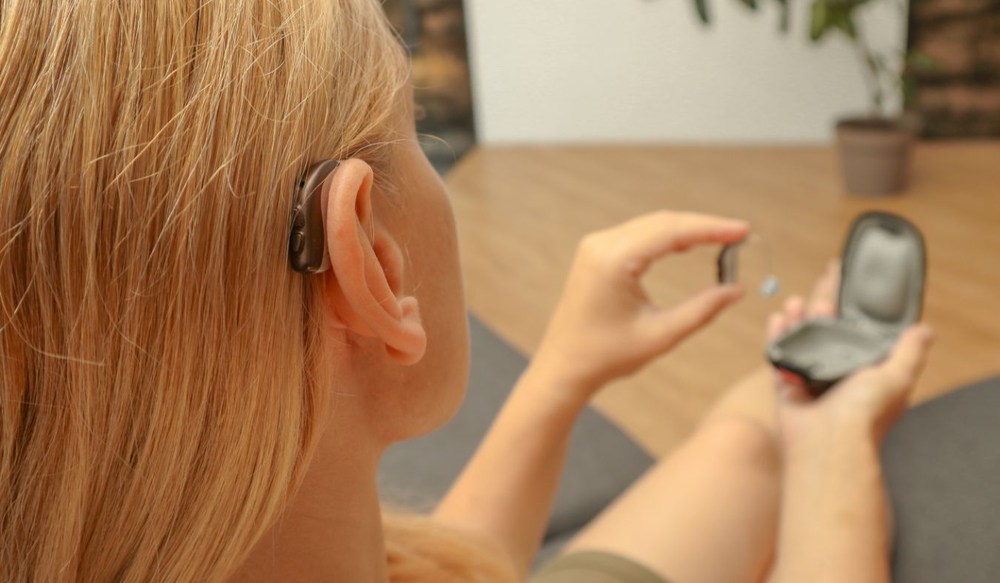How to Identify and Avoid Ototoxic Medications
When we take medication, we expect it to help solve health problems –

Tinnitus affects millions of Americans. The National Institute on Deafness and Other Communication Disorders estimates that over 25-million Americans experience some form of tinnitus. To put it into perspective, this represents around 10% of the adult population.
It is important to know that tinnitus can be temporary or permanent. While temporary tinnitus can last anywhere from a few minutes to several days or weeks, many tend to experience chronic symptoms of tinnitus. Tinnitus is the perception of ringing, buzzing or other phantom sounds in the ears. It can be a disruptive symptom, but it is important to remember that you are not alone. Working with an audiologist can help provide guidance and support to help you manage tinnitus effectively.
Tinnitus can manifest itself as a result of various factors, including exposure to loud noise, age-related hearing loss, earwax blockage and certain medical conditions. As such, in order to effectively manage tinnitus, it is crucial to undergo a comprehensive evaluation by an audiologist. Some cases can be treated rapidly, such as earwax blockage, for example. It is important to understand that while tinnitus manifests itself as an audio hallucination, it isn’t necessarily connected to your hearing health. Indeed, conditions such as jaw problems or high stress have been linked to tinnitus.
High stress levels and chronic stress can intensify tinnitus symptoms. So, it can be highly helpful to introduce relaxation techniques into your daily routine. Deep breathing exercises, meditation and yoga can alleviate stress levels and provide relief from tinnitus in the long term.
<p>If you have hearing loss in addition to tinnitus, hearing aids can offer significant benefits. Hearing aids are designed to amplify external sounds, making it easier for you to hear and reduce the perception of tinnitus. It is worth mentioning that your audiologist can help you find <a href=”https://hpoal.com/hearing-aids/”>modern hearing aids</a> with a built-in tinnitus masking function. This produces soothing sounds that can mask or minimize the impact of tinnitus.</p>
Alternatively, if your hearing health isn’t affected despite the tinnitus symptoms, sound therapy can be a useful tool for managing the ringing noise. Using background noise, such as white noise machine, nature sounds or soft music, can provide the distraction and relief you need from the perceived ringing or buzzing in your ears.
It is hard to pinpoint precisely the cause of tinnitus. But experts have found that maintaining a healthy hearing lifestyle can significantly influence tinnitus management. Here are some of the hearing health changes your audiologist can recommend. Protecting your ears from loud noises, such as using earplugs or earmuffs in noise environments, can prevent damage to your hearing. This can reduce the risk of tinnitus and noise-related hearing loss. For individuals who already experience tinnitus, avoiding loud noises can potentially reduce the intensity of tinnitus.
A balanced diet can support your bodily functions, including the health of your auditory system. Consuming a nutritious diet rich in vitamins, minerals and antioxidants can help keep your hearing system healthy. Some studies suggest a small but significant relationship between your diet and tinnitus. So, it can be something to discuss with your audiologist among other strategies.
Getting enough sleep is an important part of managing your stress levels. The levels of cortisol, which is the stress hormone, drop during a healthy sleep cycle. Sleep allows your body to regulate stress. Sleep-deprived individuals are more at risk of experiencing chronic stress and stress-related tinnitus.
Healthy ear cleaning routines are also important. While cotton swabs are popular, they can be harmful when used to clean your ear. Pushing a cotton swab into the ear canal can lead to damage and could create earwax blockages, which lead to tinnitus in some cases. If you suspect an earwax problem, you should consult an audiologist for safe removal rather than attempting to do it yourself.
Keeping on top of your health checkups plays a primordial role in minimizing tinnitus risks. As explained, some medical conditions, including chronic stress and temporomandibular joint dysfunction (TMJ) disorders, which affects opening the mouth, can be linked to tinnitus.
Your audiologist can provide education and counseling, helping you better understand tinnitus and providing specific strategies for your experience. Support groups and online forums can also connect you with others who experience tinnitus, allowing you to share experiences and gain valuable insights.
While tinnitus may persist, there are many effective strategies and positive lifestyle changes that can make it more manageable. Our audiologist team at Hearing Professionals of Alabama is committed to providing you with the tinnitus support and guidance to improve your quality of life. Call our office in Auburn at (334) 539-5335 or in Montgomery at (334) 557-8930 to book an appointment.

When we take medication, we expect it to help solve health problems –

Winter weather can create unexpected challenges for your hearing aids.

Choosing a hearing aid is a personal decision that can make a real